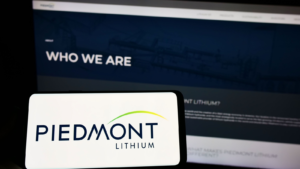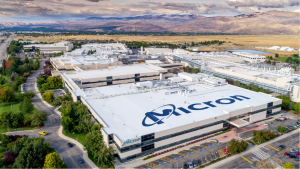Dubbed the Magnificent 7, shares of Apple (NASDAQ:AAPL), Microsoft (NASDAQ:MSFT), Alphabet (NASDAQ:GOOG, NASDAQ:GOOGL), Amazon (NASDAQ:AMZN), Nvidia (NASDAQ:NVDA), Tesla (NASDAQ:TSLA), and Meta Platforms (NASDAQ:META) are just a few of the monopolistic mega-caps having their best year yet. As a result, even some of the top Magnificent 7 stock suppliers are having a solid year.
With a combined market cap of about $13.2 trillion, each is significantly outperforming the S&P 500’s gain of about 15.12% year to date. While impressive, these are all names we all know.
And while all could easily push to higher highs, it’s the companies behind the scenes of each that could be next to skyrocket. In fact, here are three Magnificent 7 stock suppliers you may want to seriously consider.
Vicor Corp. (VICR)
Vicor Corp. (NASDAQ:VICR) is a $2.5 billion designer and manufacturer of power components and semiconductor power supply modules. While that may not sound exciting, consider this: the company recently hinted at a new artificial intelligence (AI) platform win, which some analysts believe is Nvidia’s H100 graphics processing unit, according to CNBC.
“Needham also believes that the Vicor remarks may signal a relationship with Nvidia. It called the company the ‘supplier of choice‘ for AI accelerator power management,” added CNBC. Even Craig-Hallum, which upgraded VICR to a buy rating with a price target of $80, believes the company has returned to Nvidia’s supply chain. Aside from solid earnings, it would help explain why the VICR stock gapped from about $58 to $98.38 earlier this year.
Piedmont Lithium (PLL)

In an effort to secure far more lithium supply to meet demand, Tesla inked a deal with Piedmont Lithium (OTCMKTS:PLL) – which has a lithium project in North Carolina. Under the terms of the deal, PLL will deliver about 125,000 metric tons of SC6 (spodumene concentrate 6) starting in the second half of this year through the end of 2025.
Not only does Piedmont own 100% of the lithium project in North Carolina, but it has 100% ownership of a mine in Tennessee, as well. Both projects could produce about 60,000 metric tons of lithium hydroxide every year, which, according to Seeking Alpha, could contribute “a third of the planned capacity in the U.S.” It’s also increasing its stake in Atlantic Lithium’s (OTCMKTS:ALLIF) Ewoyaa project. According to a definitive feasibility study, the project will have a 12-year mine life, producing about 2.7 million tonnes of lithium per year.
Even better, according to Mining-Technology.com, “Ewoyaa is expected to bring a post-tax net present value of $1.5bn, with a free cash flow of $2.4bn through life-of-mine revenues of around $6.6bn.”
Micron Technology (MU)

Or, we can also look at a well-known supplier such as Micron Technology (NASDAQ:MU).
The company – which develops dynamic random-access memory (RAM), flash memory, and USB drives for industry heavyweights is another supplier to consider.
For one, Micron’s high-bandwidth memory (HBM) – a high-capacity stacked DRAM, which could unlock far more powerful AI – may blow the competition out of the water. In fact, its HMB3 chip can reportedly fit 24GB of memory within eight layers of DRAM, which crushes the current 12-layer, 16 GB capacity GBM cubes. That could allow developers to train AI models even faster than before.
Two, in its third quarter, Micron beat earnings expectations with revenue of $3.8 billion, non-GAAP EPS of -$1.43, operating expenses of $866 million, $11.4 billion in cash and investments, and $13.9 billion in total liquidity. Analysts like the stock, too.
Citi, for example, just reiterated a buy rating on the stock, with a $85 price target. The firm cited a recovery in DRAM for the rating. The firm also initiated a “90-day positive catalyst watch” in September, as well. Even Barclays just raised its price target on MU to $80 from $75, with an overweight rating. The firm also raised its 2023 and 2024 estimates with signs of a recovery materializing.
On the date of publication, Ian Cooper did not hold (either directly or indirectly) any positions in the securities mentioned. The opinions expressed in this article are those of the writer, subject to the InvestorPlace.com Publishing Guidelines.
